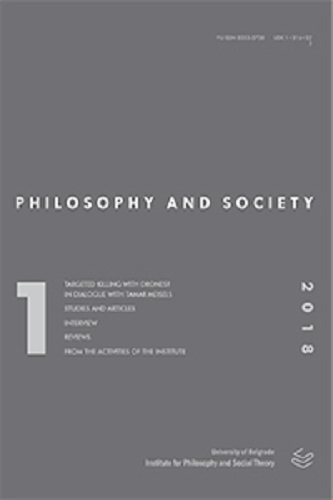Utilitarianism and the Idea of University
Utilitarianism and the Idea of University
A Short Ethical Analysis
Author(s): Nenad N. CekićSubject(s): Ethics / Practical Philosophy
Published by: Institut za filozofiju i društvenu teoriju
Keywords: Utilitarianism; hedonism; consequentialism; university
Summary/Abstract: The standard objection to the utilitarian vision of morality is that utilitarian so-called “Greatest-Happiness Principle” could justify counter-intuitive practices such as punishing and sacrifice of innocents, breaking of promises and manipulation. The underlying presumption is that the greatest cause (general utility, “happiness”) must be capable of justifying causing suffering of the few. The fact is that, in the upbringing and education of humans (children), some degree of manipulation is needed. Instead, in that process, we use concepts which belong to deontological prescriptions (“obligations,” “duties”) such as “Do not lie” or “Do not steal.” Our question is: Can we imagine the University guided by the simple utility principle. We must remember that a University is for adults, not for children. Why now not be open and at the University say that everything we do we do for the sake of hedonistic “happiness,” not for the sake of duty. That seems suspicious for several reasons. Maybe the most noteworthy objection is that Mill’s version of the utilitarianism tends to divide humanity into two classes: moral aristocracy, which seeks “higher pleasures,” and others who do not. Does that mean that utilitarians must organize secret utilitarian universities for moral aristocracy? Does it mean that moral aristocracy, according to the utility principle, should organize “deontological,” manipulative public universities for lower classes?
Journal: Filozofija i društvo
- Issue Year: 29/2018
- Issue No: 1
- Page Range: 73-87
- Page Count: 15
- Language: English

